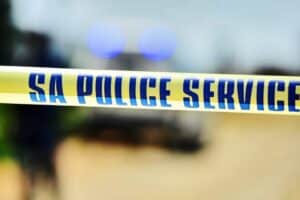Assassinations are reaching crisis levels in South Africa, but many deaths could have been prevented, had the state acted in time.

Several whistleblowers and crime busters murdered by assassins might still have been alive today had law enforcement agencies acted, with experts agreeing that government must shoulder the blame for their deaths.
The fact that University of Fort Hare vice-chancellor Professor Sakhela Buhlungu needed bodyguards to perform his duties is a chilling indication of how all facets of society have been increasingly infested by malfeasance, fear and intimidation.
For him to appeal directly to President Cyril Ramaphosa for protection following the murder of his bodyguard, Mboneli Vesele, suggests that he had appealed to local law enforcement authorities but was simply ignored.
This despite several assassination attempts at the university and the apparent hit on the university’s fleet manager Peet Roets.
ALSO READ: Fort Hare: Litany of scandals preceded VC’s assassination attempt
Abandoned to their killers
The Independent Police Investigative Directorate (IPID) has accused Hawks boss, Lieutenant General Godfrey Lebeya, of failing to protect Anti-Gang Unit detective Charl Kinnear.
The top detective, who was hot on the trail of corrupt cops linked to gun-licensing fraud, was gunned down outside his Bishop Lavis, Cape Town, home in September 2020, after his protection was inexplicably revoked the previous year.
In August 2021, Gauteng department of health acting chief financial officer Babita Deokaran was killed in front of her Johannesburg home, though she had complained to department officials that her life was being threatened.
At the time of her death, she was a key witness in the Special Investigation Unit’s probe into the Gauteng’s R332-million dodgy Personal Protective Equipment (PPE) procurement scandal.
ALSO READ: Whistleblower Babita Deokaran’s case handed over to independent investigator
Her murder prompted whistleblower Athol Williams, who blew the lid on company Baine’s fraudulent activities at the SA Revenue Services (Sars), to flee the country as there was a good chance he may also have been silenced.
Last August, businessman Marumo Phenya reported to police that his life was threatened after blowing a whistle on a dodgy multimillion-rand tender at the department of home affairs.
Days later, the 57-year-old father died in a hail of bullets in Roodepoort, Johannesburg, after dropping off his kids at school.
Blood on state’s hands
Kholofelo Rakubu, associate Professor in the department of safety and security management at the Tshwane University of Technology (TUT), said South Africa has a long history of assassinations, particularly of whistleblowers and anti-corruption crusaders.
She said the country had never been able to deal with the killings during Apartheid, nor after the transition to democracy.
“Thus, South Africa’s law enforcement is to blame for these tragic demises, purely due to high levels of corruption and inefficiency in the police service. The inefficiency coupled with police intimidation resulted in poor investigation of the reported attempts or concerns by the targeted victims,” Rakubu said.
She said there was still no data available on targeted killings and that this impacted negatively on law enforcement’s ability to devise a response to the scourge.
ALSO READ: Hands off the truthsayers: Whistle-blowers’ safety should be a priority
Rakubu said there was a particularly low conviction rate in cases of targeted killings because of fear and intimidation, making it difficult to get a clear picture of how targeted killings were carried out
“Law enforcement agencies never take threats seriously due to lack of political will in the fight against crime. Due to lack of political will, there is poor resource allocation in the fight against crime. There is further reduction in accountability and transparency due to fearmongering directed at law enforcement officials,” she said.
Rakubu said consequences would be far-reaching if the situation was not addressed urgently, saying such killings threaten security and jeopardised the country’s integrity, making SA vulnerable to international crime syndicates.
Assassinations at crisis levels
Karam Singh, Corruption Watch’s Executive Director, said targeted hits have reached crisis levels in SA and that law enforcement agencies need to aggressively respond to this physical threat.
“It is a crisis. We have to call it what it is because if we do not, then we begin to normalise it. As much as I agree that government should take the blame, what we need is not to emotionalise it and say government has blood on its hands. We need to look at this like a serious challenge that needs aggressive response,” he said.
Singh said it would however be naïve to believe that law enforcement agencies totally failed to protect whistleblowers by looking at well-publicised cases.
NOW READ: Magistrates fear for their lives as assassins stalk SA






